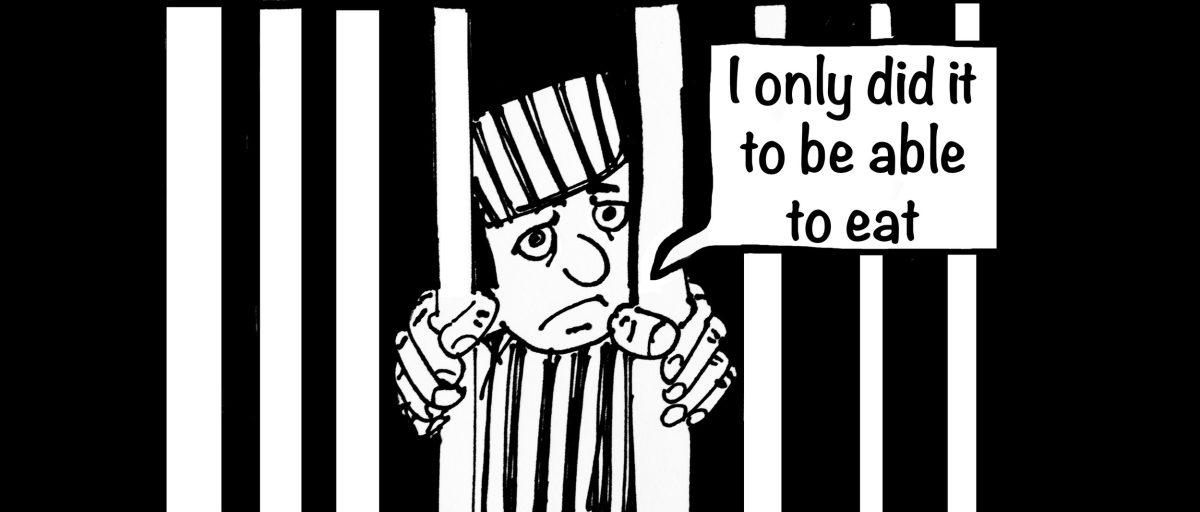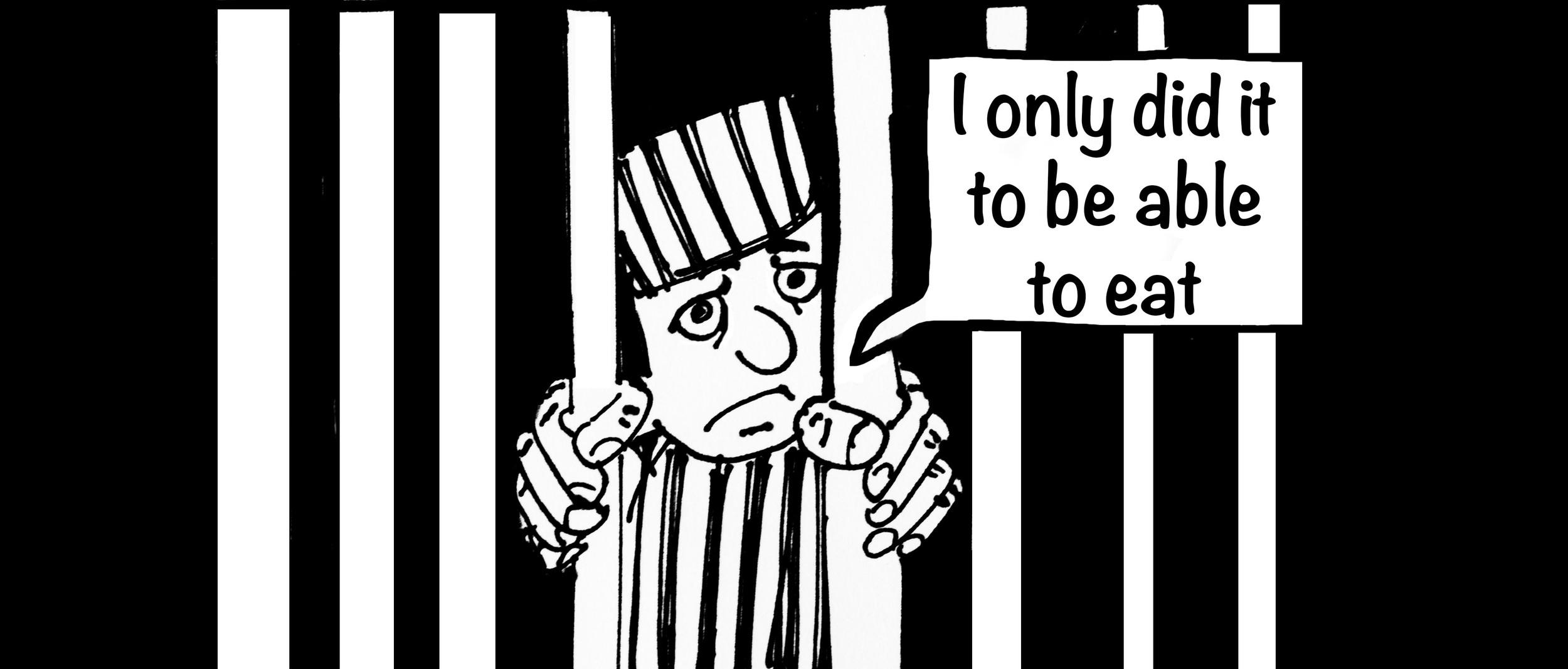The United States justice system is known for cracking down hard on drug offenders. Many states have mandatory minimum sentences, and this forces judges to hand out harsh rulings even when they should show mercy.
Many people support these long prison sentences because they believe it keeps violent, drug dealing individuals off the street. Most people, who deal drugs, do so because they have no other form of income, and selling drugs for a few hours can help an individual feed their family for a week.
One case that catches my attention is the arrest of Fate Winslow, a homeless man from Shreveport, La. Winslow had a few run-ins with the law, and had four non-violent felonies on his record before he received life in prison for selling $20 worth of marijuana.
On Sept. 5, 2008, Winslow was approached by two undercover officers looking for drugs and prostitutes. Winslow agreed to get them $20 of marijuana in exchange for a $5 delivery fee. After the transaction Winslow was arrested and sent to court, where he experienced the harsh mandatory sentences of this country .
On a prison survey provided by the American Civil Liberties Union, Winslow was asked why he got involved in crime, and he said, “To get $5 to get something to eat.”
Because Winslow had a prior drug conviction, he was no longer eligible for food stamps. Winslow was a victim of circumstance, who presented no threat to society, yet our justice system deemed it necessary to lock him up until he dies.
While some states have completely decriminalized marijuana, there are still 25 individuals serving life in prison for non-violent marijuana offenses according to Beth Curtis, founder of lifeforpot.com.
Sadly cases like this are a norm in our society. According to the American Civil Liberties Union, there are 3,278 people serving life in prison for nonviolent offenses, most of which are drug-related. People from all over the world look at our justice system as a joke.
Not only do we have the largest amount of incarcerations per 100,000, but we have the largest number of prisoners total. According to prisonstudies.org, the United States has roughly 2.2 million prisoners while China has only 1.6 million.
Many prisoners in our country are repeat offenders, and often result to crime because they have no other options for income. It’s a cycle that is all too familiar to prisoners, and it’s evident our justice system doesn’t put enough focus on rehabilitating prisoners back into society.
Individuals like Winslow would seize the opportunity to rejoin society, but instead they are forced to die in a cell that’s smaller than many of the dorm rooms at Sonoma State.
Some of those dorm rooms have more than $20 of marijuana in them, yet no student would ever dream of having to serve life for two dime bags.
It costs a fortune for the United States to lock up prisoners, and according to humanrightswatch.org, the United States spends about 60 billion a year on incarcerations. Close to half of these incarcerations are for non-violent offenses.
When non-violent offenders receive harsh sentences, the American people begin to lose faith in the justice system.
Many activists have called for change, and even some high-ranking officials in the justice department believe the system needs to change the way non-violent offenders are punished.
In a recent interview with National Public Radio, Deputy Attorney General James Cole said, “For our criminal justice system to be effective, it needs to not only be fair, but it also must be perceived as being fair, and older, stringent punishments that are out of line with sentences imposed under today’s laws erode people’s confidence in the justice system.”
Imagine if our county, instead of locking up non-violent offenders, used the money to rehabilitate them by helping prisoners find jobs, housing and other necessities to live a decent life.
Many of these inmates find they would no longer have to resort to a life of crime in order to survive, and their contributions to society could be tremendous.
Instead, our country continues with its failed justice system, by locking up vulnerable individuals who break the law because they have no other means to support themselves.
Hopefully one day our justice system will see that locking up non-violent offenders costs taxpayers a fortune, and puts individuals into a system that is nearly impossible to break out of.





![[Both photos courtesy of sonoma.edu]
Ming-Ting Mike Lee stepped in as the new SSU president following Sakakis resignation in July 2022](https://sonomastatestar.com/wp-content/uploads/2024/04/CC4520AB-22A7-41B2-9F6F-2A2D5F76A28C-1200x1200.jpeg)




























